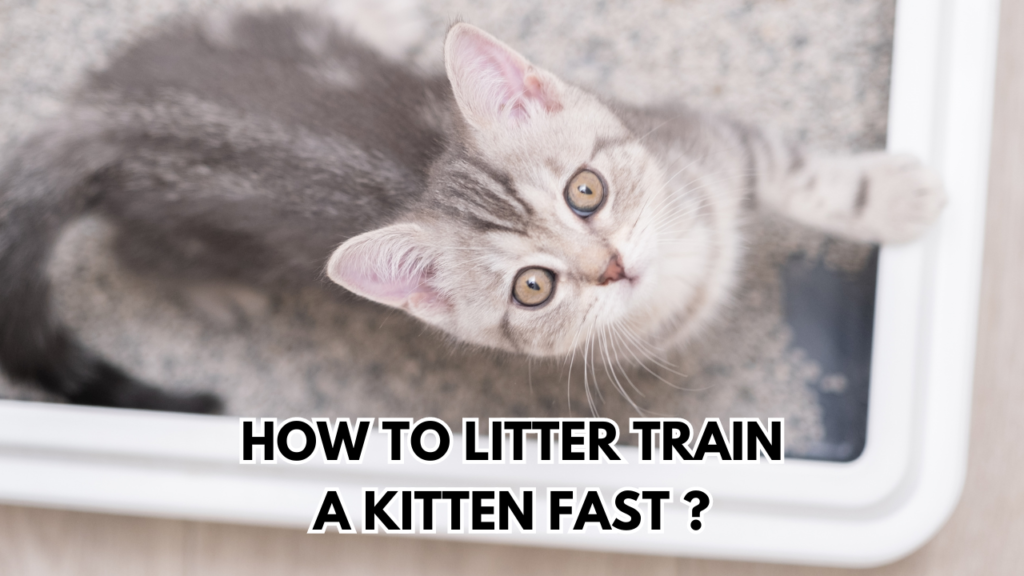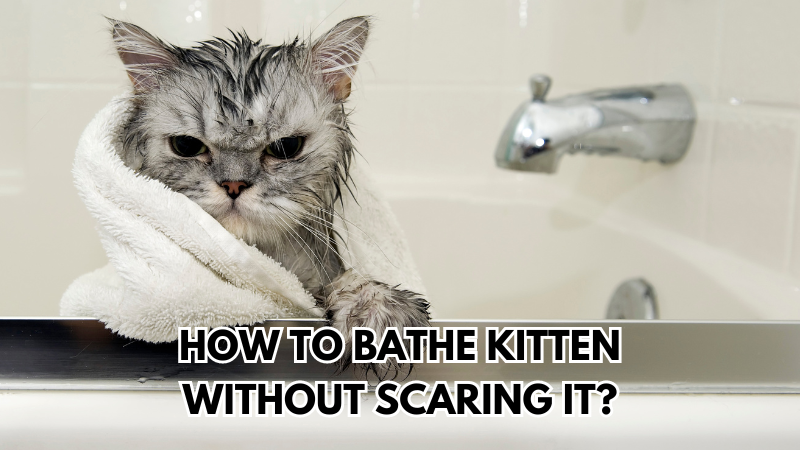So, you’re cuddling with your kitten, and suddenly they start retching and coughing. Before you know it, there’s a puddle of vomit on the floor. It’s every cat owner’s worst nightmare: your precious kitten vomit, and you’re not sure what to do.
But fear not! While seeing your kitten vomit can be distressing, it’s essential to stay calm. You should take the right steps to help them feel better.
In this article, we’ll explore why kittens vomit and what you can do to ease their discomfort.
Uh-Oh, My Kitten Vomited: What Now?
Seeing your kitten vomit can be alarming and leave you feeling helpless and worried. After all, kittens are delicate creatures, and any sign of illness can send us into a panic.
So let’s take a closer look at why kittens vomit and what steps you can take to help them feel better.

Why Do Kittens Vomit?
First things first, it’s essential to understand that vomiting is a natural defense mechanism for cats. Kittens, like their adult counterparts, may vomit for a variety of reasons, including:
Dietary Indiscretion. Kittens are notorious for getting into things they shouldn’t. They are nibbling on houseplants, gobbling up scraps of human food, or ingesting foreign objects. Eating something that doesn’t agree with their stomach can lead to vomiting.
Hairball. Just like adult cats, kittens can develop hairballs from grooming themselves. Sometimes hairballs become too large to pass through the digestive tract. And kittens may vomit them up to get rid of the hairball.
Parasites. Intestinal parasites, such as roundworms or tapeworms, can wreak havoc on a kitten’s digestive system. It sometimes lead to vomiting, diarrhea, and other symptoms of illness.
Illness or Infection. In some cases, vomiting may be a sign of an underlying health issue, such as a viral or bacterial infection, gastrointestinal disease, or metabolic disorder. If your kitten is vomiting frequently or experiencing other symptoms, it’s time to consult with your vet.
What to Do When Your Kitten Vomit
Now that you understand why kittens vomit let’s explore what you can do to help them feel better:
Assess the Situation. Take note of when and how often your kitten is vomiting. Also, you should monitor any other symptoms they may be experiencing. If your kitten is vomiting repeatedly, appears lethargic, or refuses to eat or drink, it’s essential to seek vet attention promptly.
Remove Food and Water. Temporarily remove your kitten’s food and water dishes to allow their stomach to settle. Offer small amounts of water or ice cubes to help prevent dehydration. Avoid feeding them until their vomiting has subsided.

Monitor Their Condition. Keep a close eye on your kitten’s condition, watching for any changes or worsening symptoms. If your kitten’s vomiting persists or if they have symptoms such as diarrhea, lethargy, or abdominal pain, you should contact your vet.
Offer Bland Food. Once your kitten’s vomiting has stopped, gradually reintroduce bland, easily digestible food such as boiled chicken or plain rice. Avoid feeding them fatty foods that could upset their stomach.
Prevent Future Episodes. Finally, make sure your kitten’s environment is safe from potential hazards. Keep toxic plants out of reach, secure household chemicals, and supervise your kitten closely.
Kitten Vomit: When to Worry
Occasional vomiting is relatively common in kittens and usually nothing to worry about. But frequent vomiting can be a sign of a more serious underlying issue. It’s essential to contact your vet if your kitten:
- is vomiting repeatedly or consistently.
- appears lethargic, weak, or unresponsive.
- is refusing to eat or drink.
- is experiencing additional symptoms such as diarrhea, fever, or abdominal pain.
Read: What To Do If My Kitten Won’t Eat?
While seeing your kitten vomit can be distressing, it’s essential to stay calm and take the right steps to help them feel better.
By knowing what to do, you can ensure that your kitten receives the care and attention they need to recover quickly and stay healthy.
Remember, when in doubt, always consult with your vet for guidance and support. With a little love and TLC, your kitten will be back to their playful, purring self in no time.***
Watch Videos about Cat & Kitten Care on Youtube @naowthecat